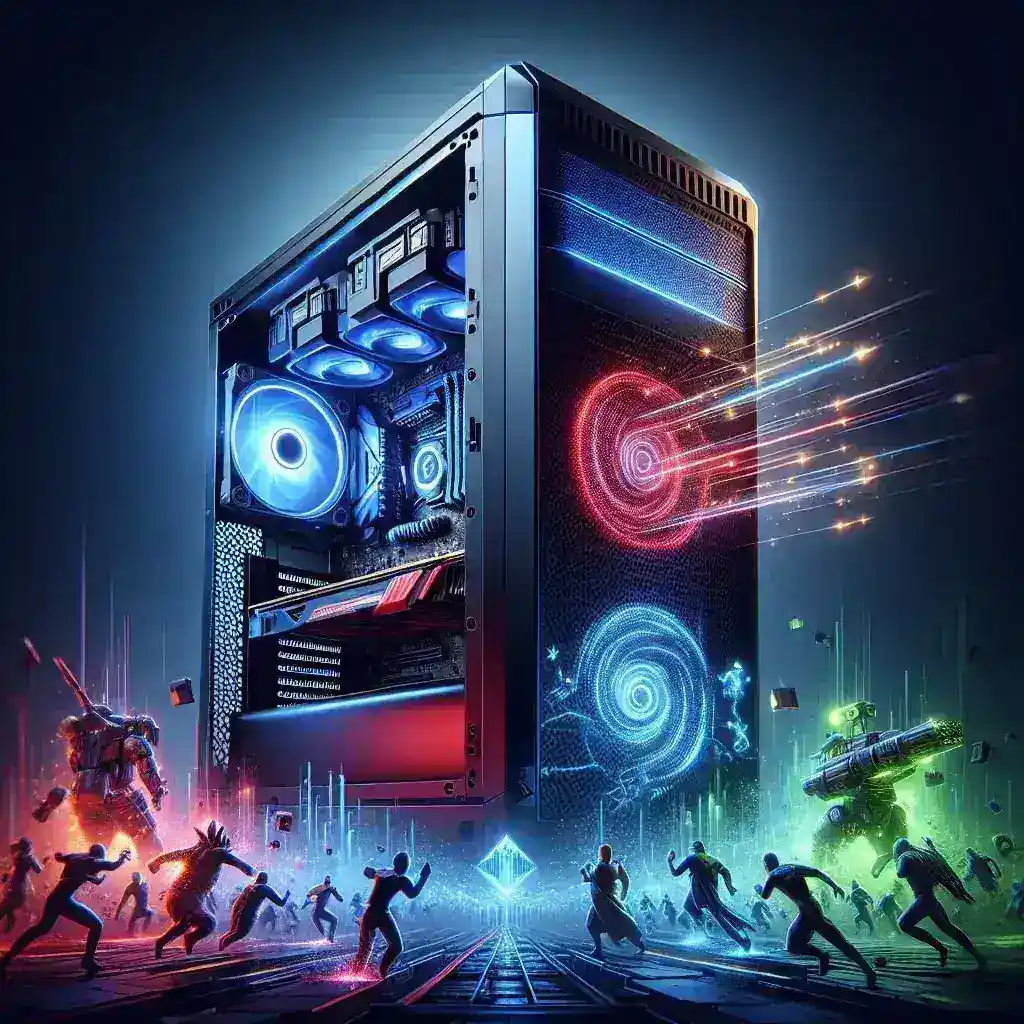
How do gaming PCs benefit from hardware-accelerated physics simulations?
In the realm of gaming, realism and experience are continually evolving. Cutting-edge advancements such as hardware-accelerated physics simulations have vastly improved gaming PCs’ capabilities. This technology brings unique benefits, contributing to breathtaking visuals, immersive environments, and smoother gameplay. But what precisely are physics simulations, how do they work, and why are they so beneficial for gaming PCs?
Understanding Hardware-Accelerated Physics Simulations
Physics simulations in gaming refer to the mathematical recreation of physical laws within a virtual space. This involves simulating gravity, collisions, fluid dynamics, and other real-world physics elements to create realistic interactions and movements in games. Hardware acceleration utilizes the specialized power of GPUs (Graphics Processing Units) to perform these complex simulations more efficiently than traditional CPUs (Central Processing Units).
Components of Hardware-Accelerated Physics Simulations
- GPUs: The primary driver for these simulations, GPUs handle parallel processing which is perfect for the complex calculations required in physics.
- Software APIs: APIs like NVIDIA’s PhysX or AMD’s TressFX provide the frameworks needed for implementing physics simulations in games. They act as intermediaries between the hardware and the game software.
- Game Engines: Engines like Unreal Engine and Unity integrate these technologies to allow developers to create highly realistic game environments.
Benefits to Gaming PCs
- Enhanced Realism: Hardware-accelerated physics simulations allow for more lifelike environments and character interactions.
- Improved Performance: Offloading the physics calculations from the CPU to the GPU enhances overall system performance and reduces computational load.
- Smoother Gameplay: With the heavy lifting done by the GPU, games run more smoothly, reducing lag and frame stutter.
- Innovative Game Mechanics: Developers can design more complex and innovative gameplay mechanics that rely on realistic physics interactions.
Real-World Applications
Many popular games have already implemented hardware-accelerated physics to great effect. Titles like “The Witcher 3: Wild Hunt,” “Grand Theft Auto V,” and “Battlefield V” utilize advanced physics simulations to deliver stunning visuals and engaging gameplay. These games demonstrate the potential of this technology in providing players with an unparalleled gaming experience.
| Game Title | Physics Technology Used | Effect on Gameplay |
|---|---|---|
| The Witcher 3: Wild Hunt | NVIDIA PhysX | Realistic hair and clothing movements |
| Grand Theft Auto V | Bullet Physics | Detailed vehicle dynamics and environmental interactions |
| Battlefield V | Frostbite Engine Physics | Destructible environments and realistic soldier movements |
Future of Gaming with Hardware-Accelerated Physics
As hardware continues to evolve, the capabilities for physics simulations will only expand. The advent of ray tracing GPUs, like NVIDIA’s RTX series, further augments the ability to create highly detailed and realistic game environments. With these advancements, we can expect future games to be even more immersive and visually stunning.
Impact on Other Areas
While gaming is the primary benefactor, other industries such as VR (Virtual Reality), AR (Augmented Reality), and even film production can leverage these advancements in physics simulations. This crossover potential signifies a broader impact, enhancing not only gaming but various digital experiences.
Conclusion
Hardware-accelerated physics simulations have revolutionized gaming by creating more realistic and immersive worlds. This technology significantly enhances both the aesthetic and performance aspects of gaming, allowing developers to push the boundaries of what’s possible. As these technologies continue to advance, the future of gaming and digital experiences looks incredibly promising.



Leave a Comment